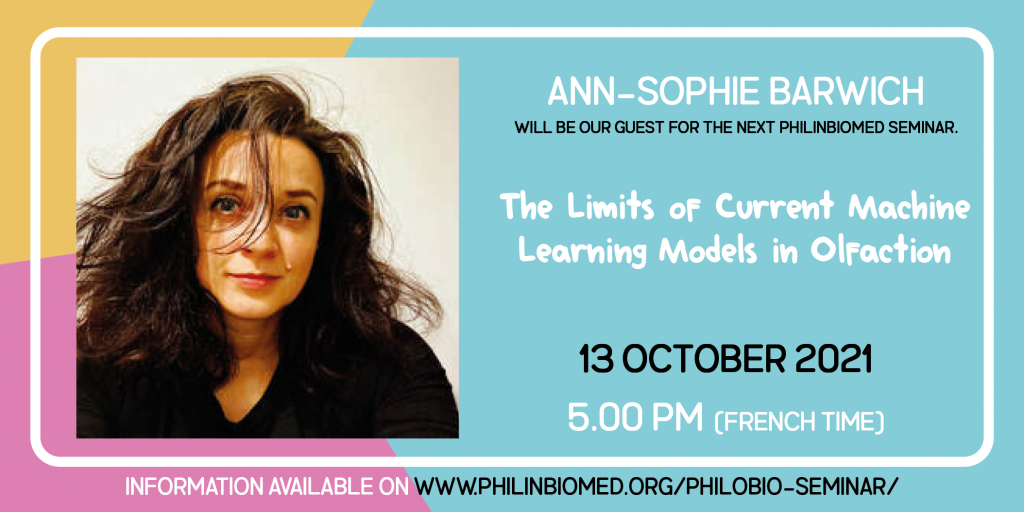
- This event has passed.
Ann-Sophie Barwich (Indiana University Bloomington, USA), The Limits of Current Machine Learning Models in Olfaction
13 October 2021 | 17 h 00 min - 18 h 30 min

Ann-Sophie Barwich is a cognitive scientist, an empirical philosopher, and a historian of science. She is an Assistant Professor with joint positions in the Cognitive Science Program and the Department of History and Philosophy of Science at Indiana University Bloomington. Barwich is best known for her interdisciplinary work on the history, philosophy, and neuroscience of olfaction. Her book, Smellosophy: What the Nose tells the Mind, highlights the importance of thinking about the sense of smell as a model for neuroscience and the senses. She is also noted for her analyses on methodological issues in molecular biology and neuroscience.

Title : The Limits of Current Machine Learning Models in Olfaction
Abstract : Can machine learning crack the code in the nose? Over the past couple of years, several studies tried to solve the relation between chemical structure and sensory quality with Big Data (e.g., Koulakov et al. 2011; Keller et al. 2017). These studies advanced computational models of the olfactory stimulus, utilizing artificial intelligence to mine for clear correlations between chemistry and psychophysics. Computational perspectives promised to solve the mystery of olfaction with more data and better data processing tools. None of them succeeded, however, and it matters as to why this is the case. This talk argues that we should be deeply skeptical about the trend to black-box the sensory system’s biology in our theories of perception. Instead, we need to ground both stimulus models and psychophysical data on real causal-mechanistic explanations of the olfactory system. The central question is: Would knowledge of biology lead to a different understanding of the stimulus in odor coding than the one utilized in current machine learning models? That is indeed the case. Recent studies about receptor behavior have revealed that the olfactory system operates by principles not captured in current stimulus-response models (e.g., Poivet et al. 2017, 2018). This may require a fundamental revision of computational approaches to olfaction, including its psychological effects.
Please find the video of the talk here :

